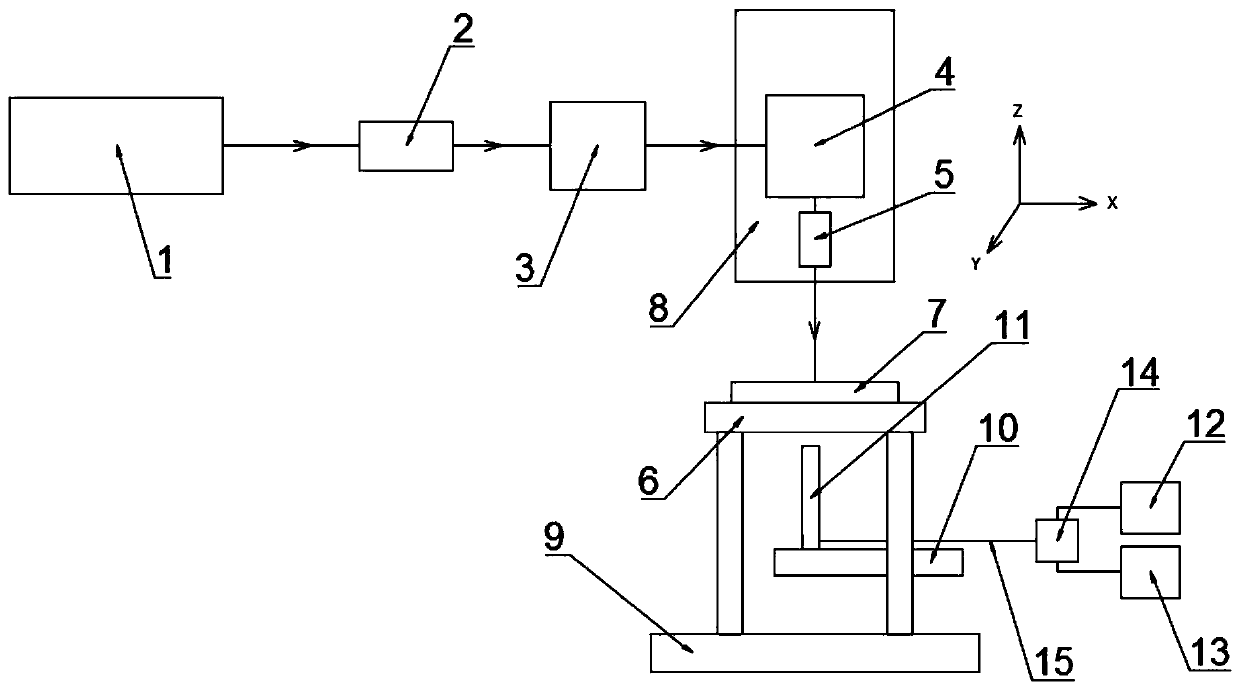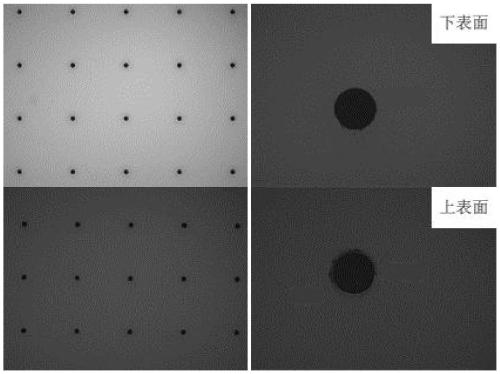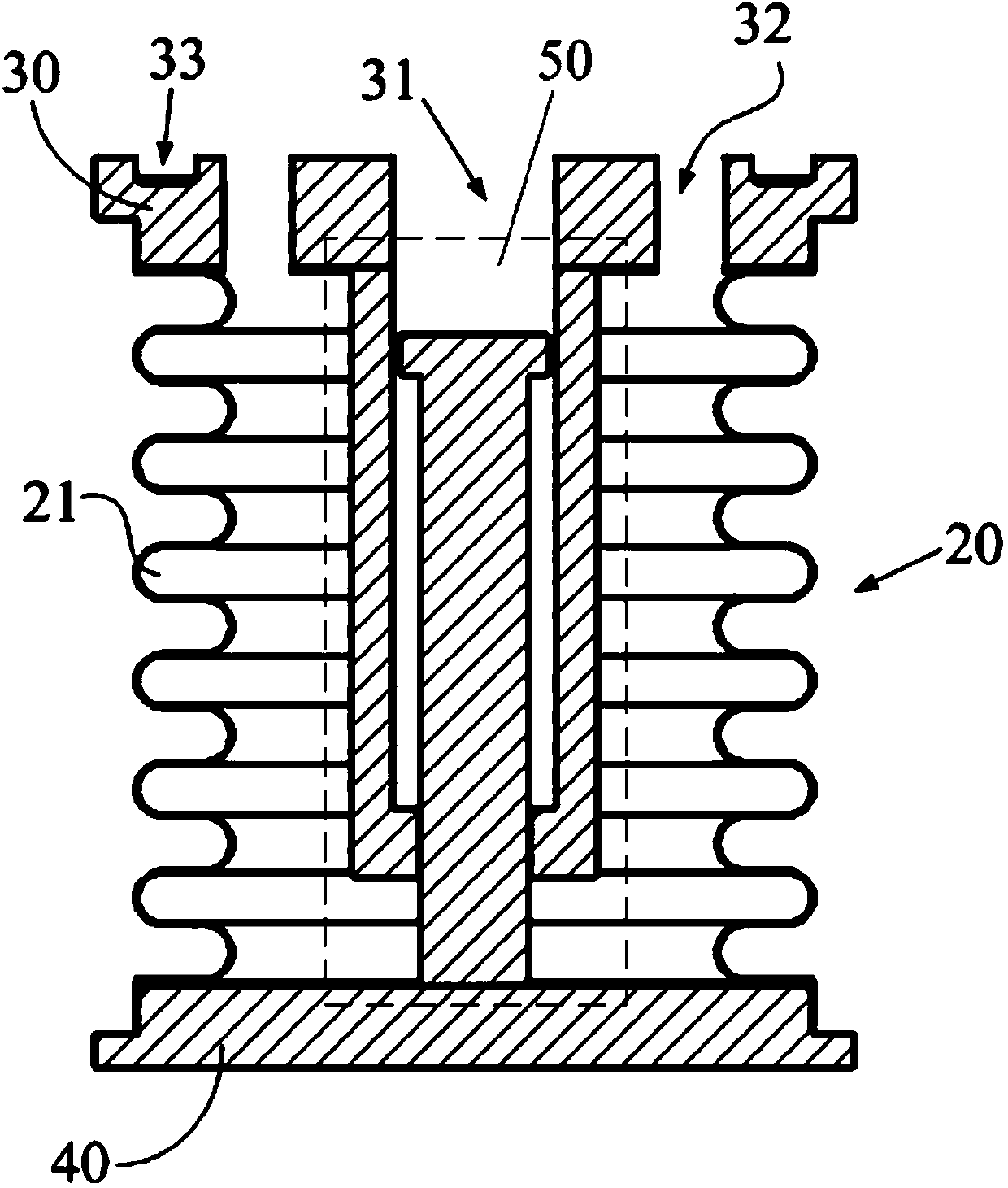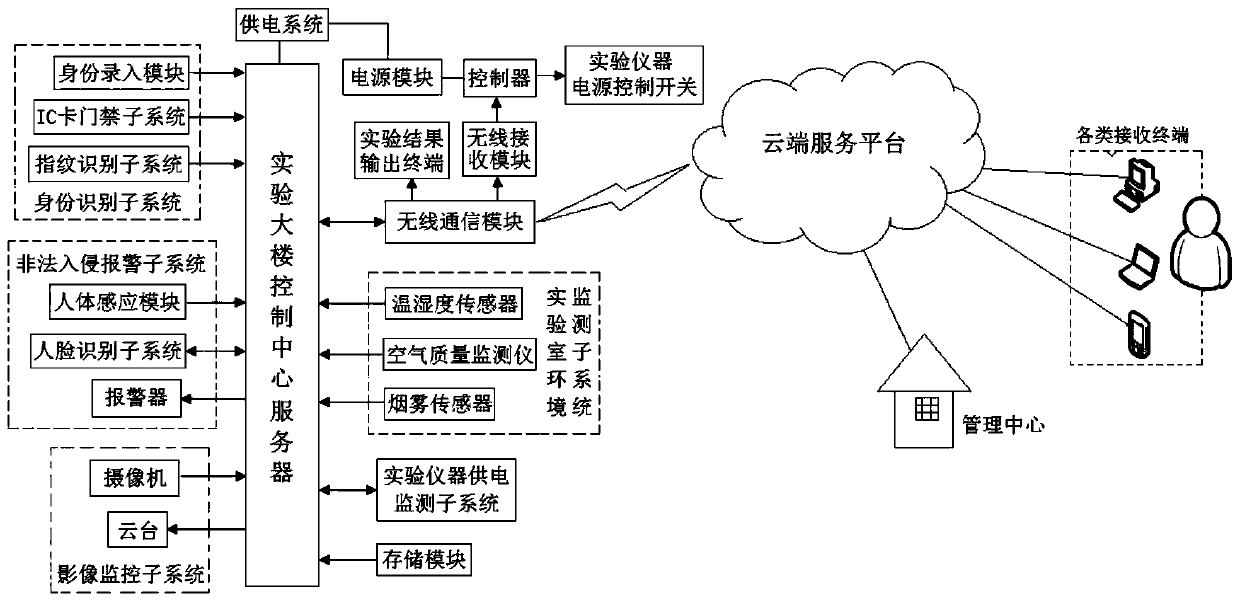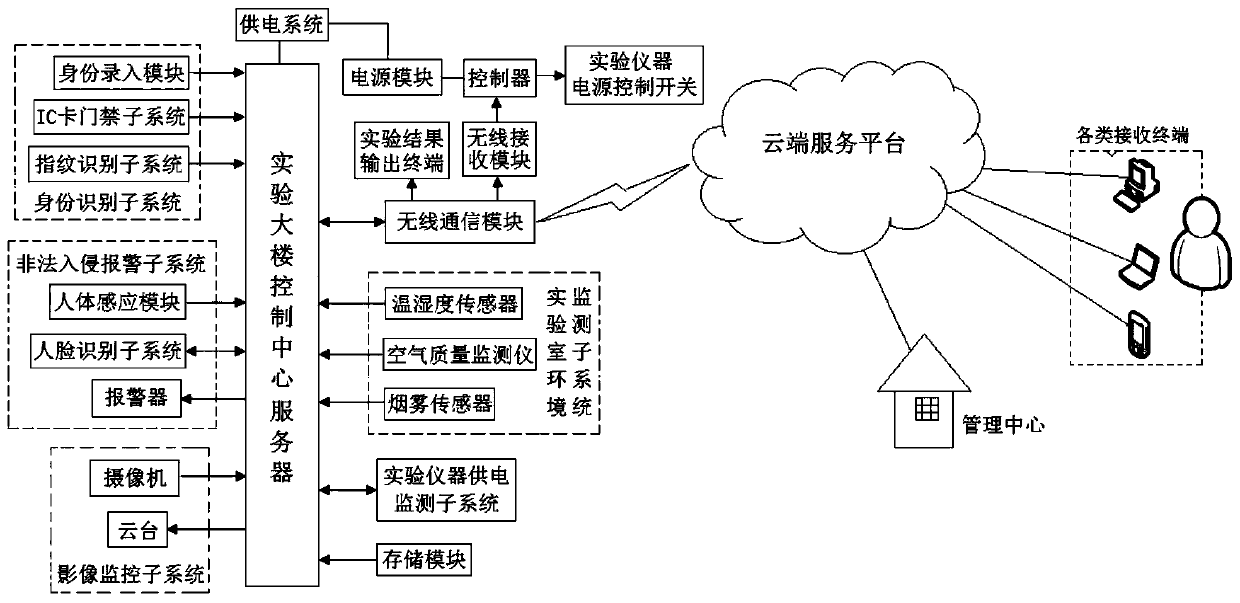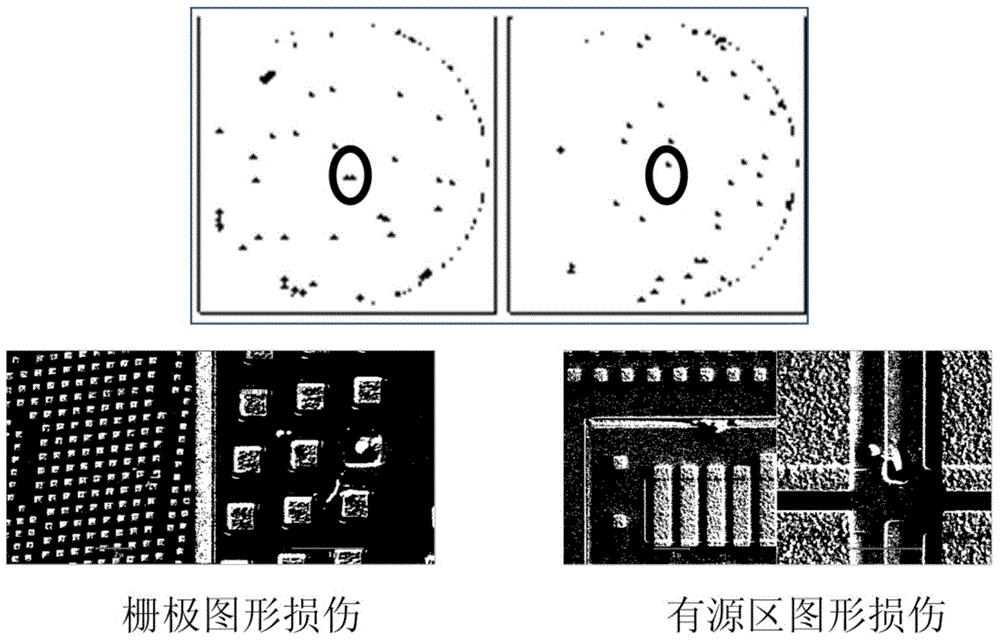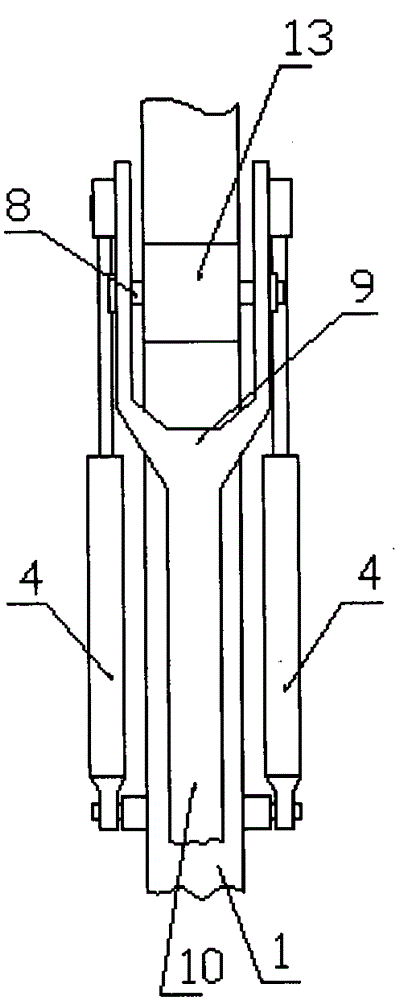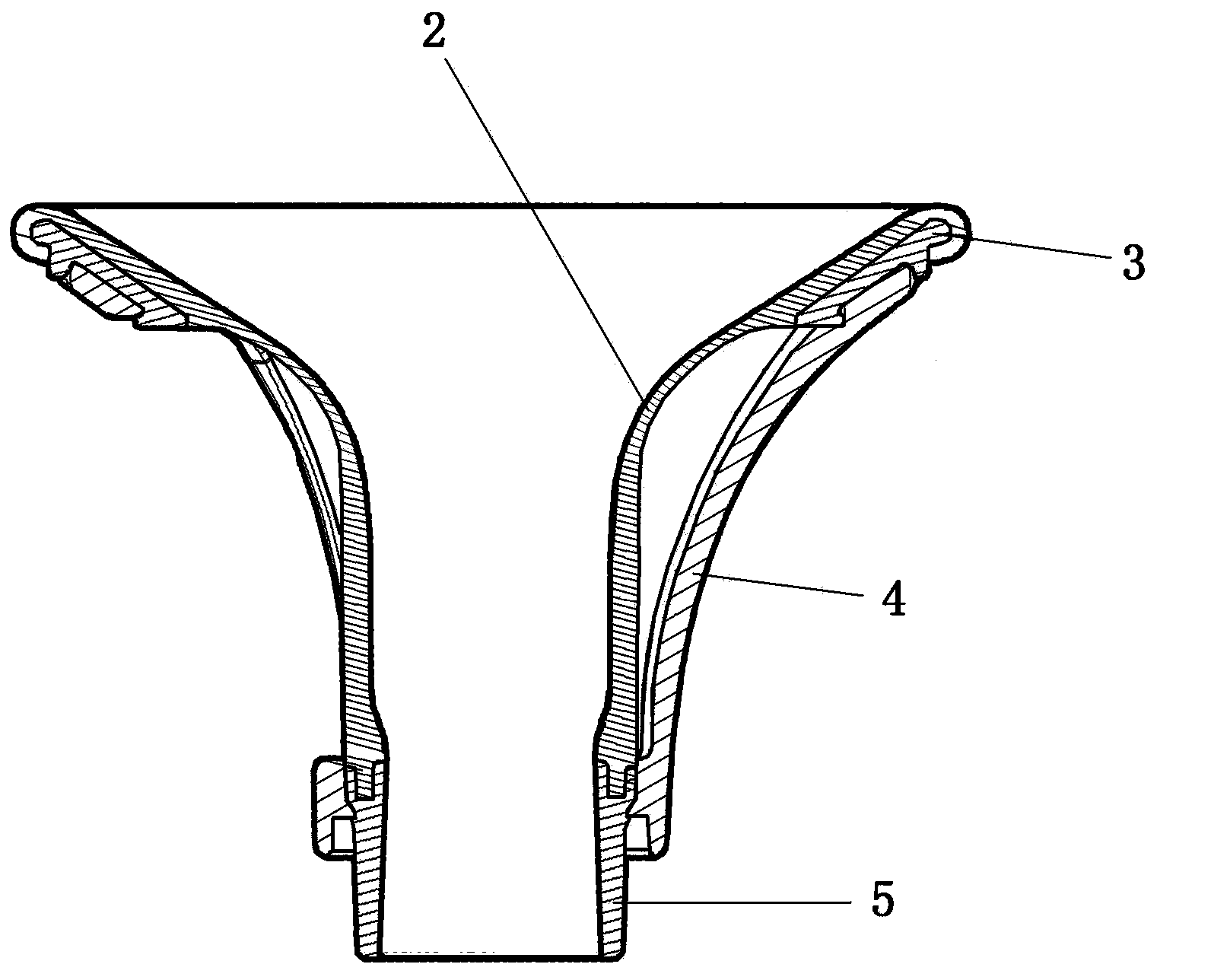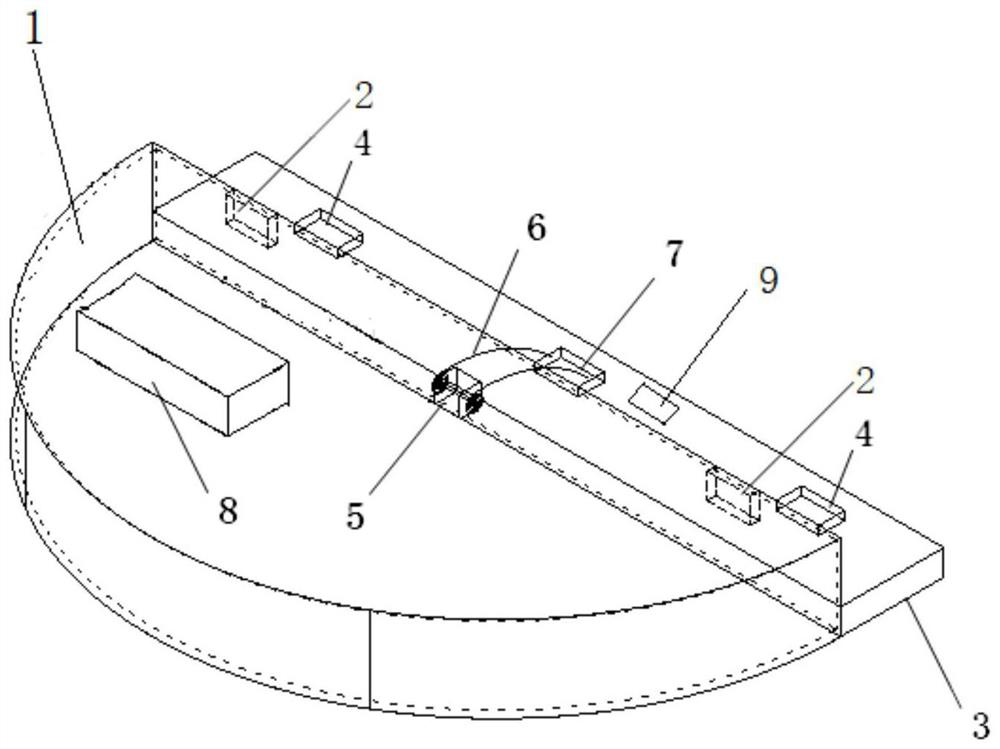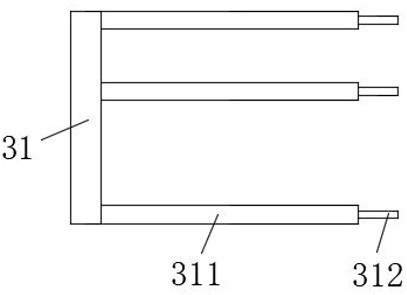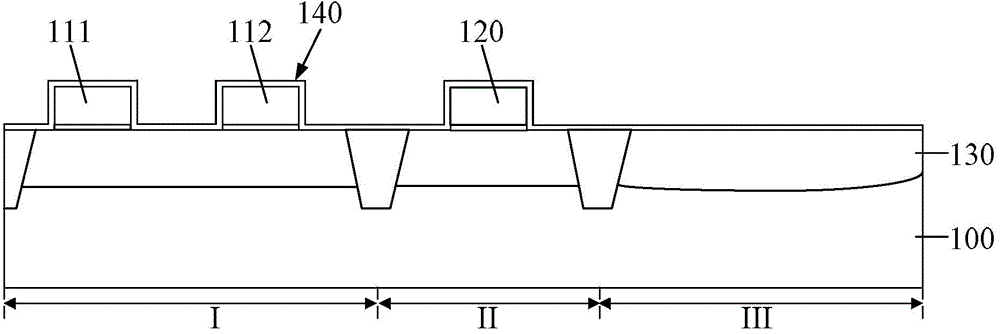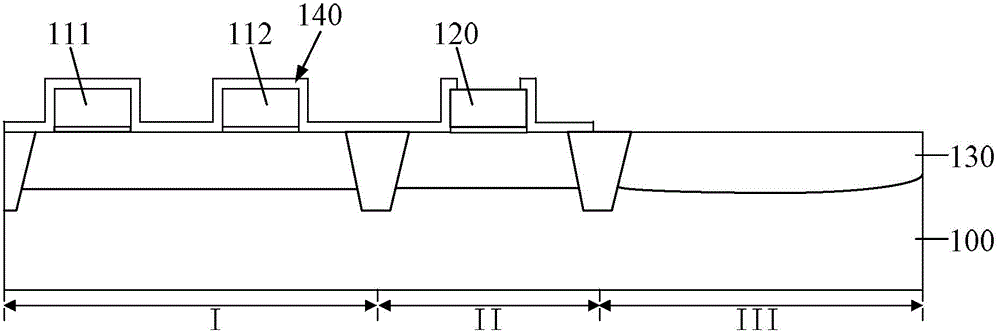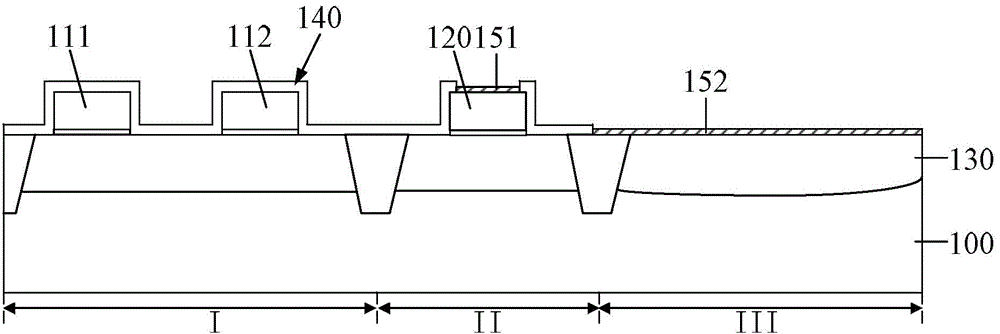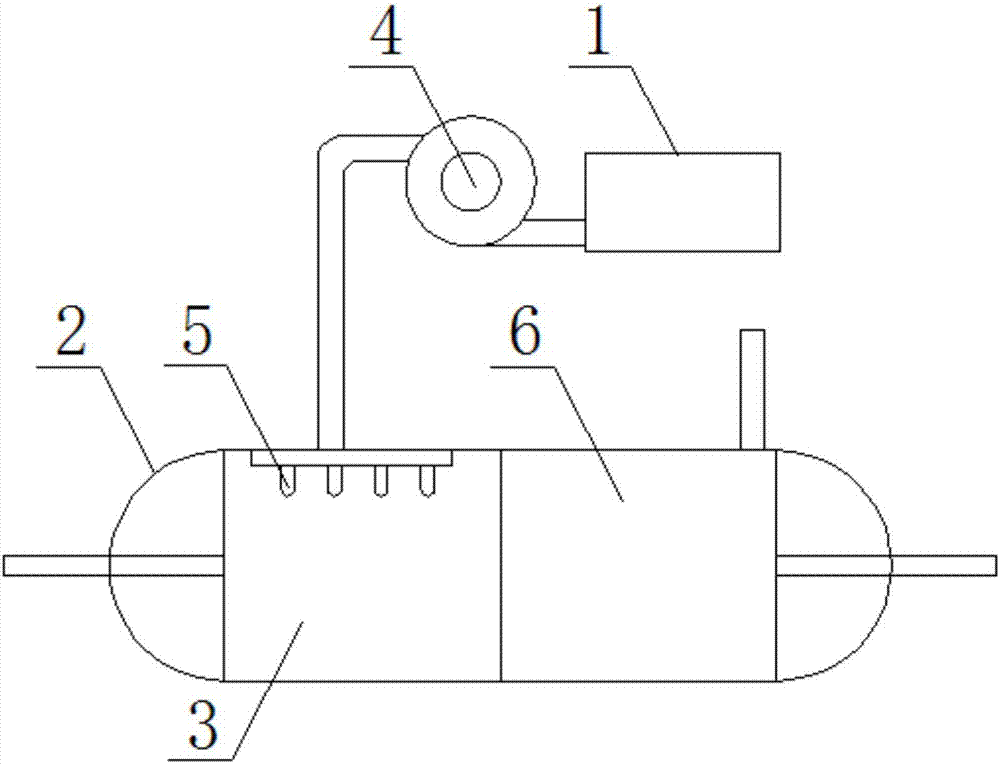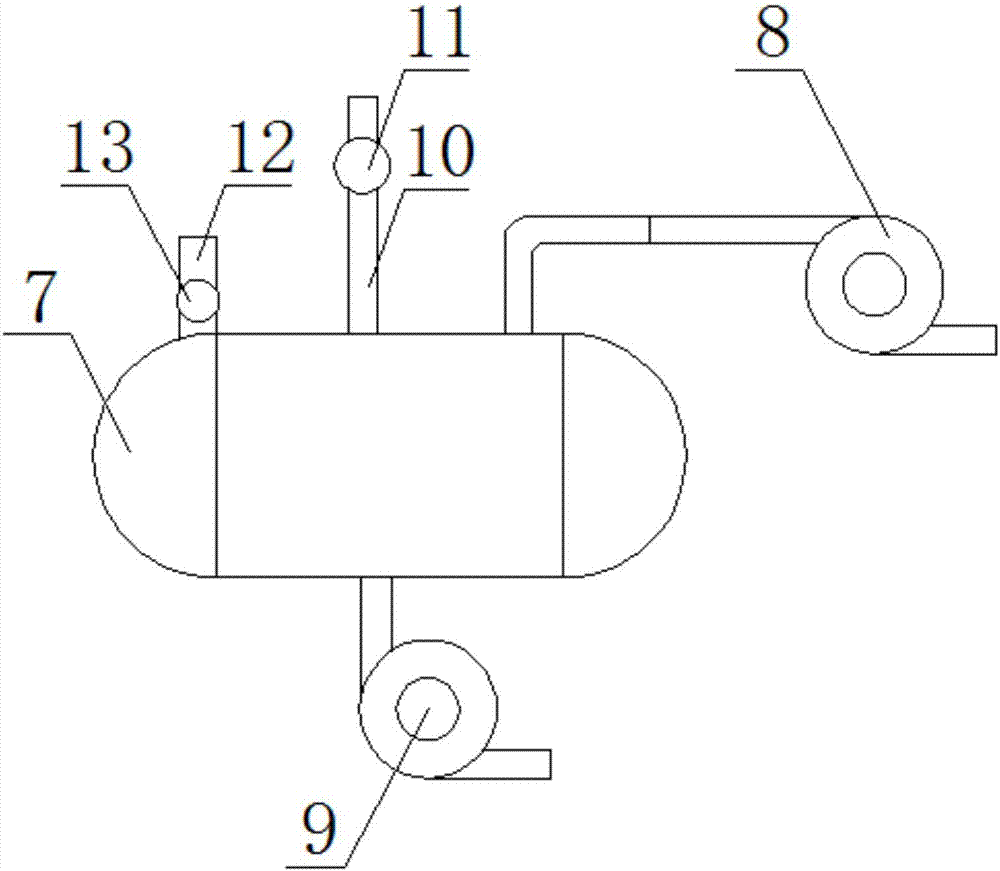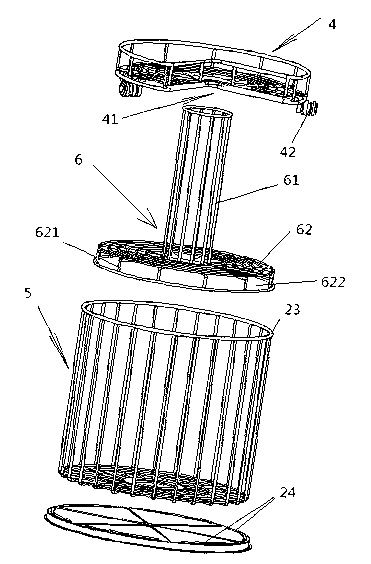Patents
Literature
70results about How to "Avoid Damage Defects" patented technology
Efficacy Topic
Property
Owner
Technical Advancement
Application Domain
Technology Topic
Technology Field Word
Patent Country/Region
Patent Type
Patent Status
Application Year
Inventor
Biological enzyme process antibacterial and anti-wrinkle finishing method of silk fabric
InactiveCN102677475AHigh catalytic efficiencyReduce dosageBiochemical fibre treatmentAnimal fibresCooking & bakingCatalytic oxidation
The invention discloses a biological enzyme process antibacterial and anti-wrinkle finishing method of a silk fabric, belongs to the field of a textile biotechnology, and aims to overcome the defects of high baking temperature, high probability of damage of silk fibers and reduced whiteness in real silk antibacterial and anti-wrinkle treatment of the conventional chemical method and realize enzyme-promoted antibacterial and anti-wrinkle functional modification of a real silk fabric. According to the method, a chitosan natural finishing agent with a primary amine structure is grafted to the surface of the silk fiber by utilizing the catalytic oxidation effect of tyrosinase, so that the antibacterial and anti-wrinkle effects of the silk fabric are improved. The process flow comprises the following steps of: pre-treating the silk fabric; catalyzing grafting modification treatment of chitosan by the tyrosinase; washing; and drying. Through the silk fabric treated by the invention, the antibacterial performance is improved, the wrinkle recovery performance is improved, and the mechanical property and the dyeing performance of the fabric are also improved. Compared with the conventional chemical method, the method has the advantages of adoption of the tyrosinase process for catalysis of the antibacterial and anti-wrinkle treatment process of the real silk, low energy consumption, high efficiency, less pollution and contribution to environmental protection.
Owner:FOSHAN CITY HANHAI YANBU SISTER FLOWER UNDERWEAR
Automatic variable-diameter seam welder for steel reinforcement frameworks of special pipes
ActiveCN105583566AEasy to useIncrease productivityWelding/cutting auxillary devicesAuxillary welding devicesRebarAutomatic variable
The invention relates to an automatic variable-diameter seam welder for steel reinforcement frameworks of special pipes, comprising a support mechanism, a diameter changing mechanism, a drawing mechanism, a driving mechanism and a welding mechanism, wherein the support mechanism is used for supporting the weight of longitudinal bars; the diameter changing mechanism is used for changing the position of a welding seat, relative to the center of a main disk chuck, so as to form the required cross section shape of the steel reinforcement framework; the drawing mechanism is used for dragging the steel reinforcement framework to move longitudinally and achieving synchronous rotation of a drawing disk chuck and the main disk chuck of the diameter changing mechanism; the driving mechanism is used for driving the main disk chuck of the diameter changing mechanism to rotate at uniform speed; and the welding mechanism is used for realizing welding of annular bars and longitudinal bars of the steel reinforcement framework. The seam welder for the steel reinforcement frameworks of the special pipes can be used for machining steel reinforcement frameworks of special pipes with different cross section shapes, including steel reinforcement frameworks of circular pipes, oval pipes, rectangular pipes, oblong pipes, ovoid pipes, single-circle arched pipes, three-circle arched pipes, four-circle arched pipes and V-shaped pipes, and is convenient to use and high in production efficiency.
Owner:扬州市江都区亚威建材设备有限公司
Flame-proof treatment method of real silk fabrics by biological enzyme method
ActiveCN103526543AHigh catalytic efficiencyReduce dosageBiochemical fibre treatmentAnimal fibresTyrosineCatalytic oxidation
The invention discloses a flame-proof treatment method of real silk fabrics by a biological enzyme method, belonging to the biotechnical field of spinning. The method disclosed by the invention aims to overcome the deficiencies that real silk fabrics in flame-proof treatment by conventional chemical methods are not high in washability, the real silk is easy to damage in high temperature baking, the whiteness of fiber products is easy to decrease and the like. According to the method disclosed by the invention, tyrosine residues in silk fibroin are oxidized to dopaquinone structures with stronger reactivity by means of the characteristic of tyrosinase which has a catalytic oxidation effect on the tyrosine residues in real silk fiber to promote a grafting reaction on an organophosphorus flame retardant containing a primary amine base and the dopaquinone structures, and the flame retardant function of the real silk fabrics is improved through a nitrogen-phosphorus synergistic effect, so that flame-proof treatment of the real silk fabrics by the biological enzyme method is realized. The method disclosed by the invention comprises the following process flows: real silk fabric pre-treatment, and catalyzation of the organophosphorus flame retardant containing the primary amine base by the tyrosinase to graft, water-washing and drying post-treatment. For the fabrics treated by the method disclosed by the invention, not only is the flame retardant performance improved, but also the mechanical properties of the fabrics are further enhanced. Compared with conventional chemical methods, with the adoption of flame-proof treatment by tyrosinase catalyzation on the real silk fabrics, the method is low in energy consumption, high in efficiency and less in pollution in the processing process and is beneficial to environment protection.
Owner:苏州大上科高新材料有限公司
Automatic sample injection device
ActiveCN101825559AAvoid Damage DefectsControlling the nesting processWithdrawing sample devicesMaterial analysis by optical meansPeristaltic pumpCistern
The invention relates to an automatic sample injection device, which comprises a reagent cistern used for storing reagent to be reacted, a sample cistern connected with a water extracting device and used for storing sample solutions, a sample mixing cistern used for caching the reagent to be reacted and the sample solution which are prepared according to a certain proportion, an extracting device which extracts the reagent to be reacted and the sample solution respectively to the sample mixing cistern, and an automatic sample injection control unit used for controlling the extracting device, wherein the extracting device comprises a first peristaltic pump used for extracting the reagent to be reacted in the reagent cistern, a second peristaltic pump used for extracting the sample solution in the sample cistern, and an injection pump connected with the sample mixing cistern, the injection pump realizes the discharge of the liquid in the sample mixing cistern by being pushed back and forth in the sample mixing cistern, the sample mixing cistern and / or the injection pump are / is provided with approach detection modules used for detecting the distance between the sample mixing cistern and the injection pump, and the approach detection modules are connected with the automatic sample injection control unit. The invention has accurate and reliable sample discharge results, and the operation is relatively simple.
Owner:SOUTH CHINA SEA INST OF OCEANOLOGY - CHINESE ACAD OF SCI
Sliding type driving air inlet grid structure
ActiveCN107336684AMechanicsMeets requirementsComponent optimizationRadiatorsEngineeringMechanical engineering
The invention relates to a sliding type driving air inlet grid structure which comprises a plurality of blades, a sliding mechanism and a driving device, wherein the blades are sequentially connected up and down through the sliding mechanism; the lowest blade is connected with the driving device; the driving device is connected with an automobile ECU; the automobile ECU controls the driving device to drive the lowest blade connected with the driving device to move up and down; and the rest blades is driven by the sliding mechanism to move up and down along with the lowest blade to adjust the opening degree of the blades. The sliding type driving air inlet grid structure is compact in structure and ensures stable operation; and a lower air inlet grid is high in air inlet efficiency and has a low negative effect to a wind drag coefficient, so that the automobile air drag and the engine cooling efficiency have more reasonable combination.
Owner:HUNAN UNIV
One-way valve
ActiveCN102486238AImprove sealingImprove reliabilityCheck valvesValve housingsEngineeringMechanical engineering
The invention provides a one-way valve, which comprises a valve body, a valve core, a spring, a spring seat and an elbow, wherein the valve core is arranged in a valve body; the spring is arranged below the valve core and is used for supporting against the valve core; the spring seat is arranged below the spring and is used for limiting the spring; the elbow is connected to a charging port from the upper end of the valve body; the valve core comprises a valve rod and a valve head arranged at the top end of the valve rod; a spherical crown body is arranged at the top end of the valve head; a first circular truncated cone is arranged below the spherical crown body; a first annular clamping groove is arranged between the spherical crown body and the first circular truncated cone; a sealing ring is sleeved and clamped in the first annular clamping groove; an annular sealing line corresponding to the sealing ring is arranged at the lower end of the elbow connected to the charging port fromthe upper end of the valve body; the diameter of the sealing line is between the outside diameter of the bottom surface of the spherical crown body and the outside diameter of the sealing ring; and aplurality of connecting columns are inwards convexly arranged inside the valve body and are used for fixedly connecting the spring seat with the lower end of the valve body. The one-way valve provided by the invention has the advantages of reliable sealing and easiness for mounting and dismounting; and in addition, when the one-way valve works, the valve core is not easy to swing and dislocate aswell as leak and slip.
Owner:ORIENTAL RECREATIONAL PRODS (SHANGHAI) CO LTD
Machining system and method for glass taper-free precision deep hole array
ActiveCN111098045AAvoid accumulation is not easy to remove, carry outAvoid problems that cause some taper to existWelding/soldering/cutting articlesLaser beam welding apparatusEngineeringMicroscope objective
The invention discloses a machining system for a glass taper-free precision deep hole array. The machining system sequentially comprises a laser, a beam expander, a dynamic beam shaping system, a galvanometer, a machining objective lens and a glass workpiece along a light path propagation path; the glass workpiece is mounted on a tooling fixture; the machining system also comprises an auxiliary system which is used for removing dust remained in holes in the laser drilling process; and a laser spot formed by the machining objective lens firstly acts on the lower surface of the glass workpiece,and the laser perforates the glass workpiece from bottom to top by adjusting the depth of the spot in the glass workpiece. The auxiliary system is positioned below the glass workpiece and removes dustgenerated in the laser drilling process below the glass workpiece, so that the problems of back surface damage and the like caused by the laser transmission effect of front surface machining are solved.
Owner:WUHAN HGLASER ENG CO LTD
Sweet potato cultivation method
InactiveCN105940894AReduce the frequency of weedingGuaranteed growth qualityDi-calcium phosphate fertilisersAlkali orthophosphate fertiliserBiotechnologyNutrient solution
The invention relates to the technical field of potato cultivation, and specifically relates to a sweet potato cultivation method. Through the structural treatment upon a cultivation base during a sweet potato cultivation process, the sweet potato cultivation base can satisfy nutrition and nutrient supply needs during the sweet potato cultivation process, and weed overgrowth rate is also reduced, such that weeding frequency during the sweet potato cultivation process is reduced, high labor input is avoided, cultivation cost is reduced, and the damage to sweet potato seedlings due to excessive weeding treatments can be avoided. Therefore, sweet potato growth quality is ensured. With the application of substances such as a nutrient agent, plant ash, traditional Chinese medicine components, organic nutrients and an organic nutrient solution, and with the control over the positions of the substances in the structural layers of the base, the base can provide different nutrient components according to different sweet potato growth periods. Therefore, sweet potato growth can be rapidly improved, sweet potato yield can be improved, labor input can be reduced, and cost can be reduced.
Owner:贵州省印江县依仁食品有限公司
High-voltage generator voltage-transformation oil tank
ActiveCN104183364AImprove job stabilityNot prone to defects such as corrosionRadiation diagnosis data transmissionTransformers/inductances coolingVolume variationFuel tank
The invention provides a high-voltage generator voltage-transformation oil tank. The high-voltage generator voltage-transformation oil tank comprises an oil tank which is provided with an opening and a telescopic pipe which is arranged in the oil tank, wherein, one end of the telescopic pipe is provided with an opening, and the other end of the telescopic pipe is a closed structure; one end, which is provided with the opening, of the telescopic pipe is fixed on the inner wall of the oil tank, the opening of the telescopic pipe corresponds to the opening of the oil tank, the interior of the telescopic pipe is communicated with the exterior, and a closed space is formed between the telescopic pipe and the inner wall of the oil tank. When the high-voltage generator voltage-transformation oil tank is used, the space between the telescopic pipe and the inner wall of the oil tank is fully filled with transformer oil, and the telescopic pipe is varied in a telescopic manner on the basis of the pressure inside the oil tank, so that the volume variation of the transformer oil can be counteracted, the weakness such as bubbles in the transformer oil can be avoided, and the working stability of a high-voltage generator can be improved.
Owner:SHANGHAI UNITED IMAGING HEALTHCARE
Air conditioner pedestal assembly and air conditioner
PendingCN108361833AEasy to disassembleImprove assembly efficiencyMechanical apparatusLighting and heating apparatusImpellerElectric shock
The invention provides an air conditioner pedestal assembly and an air conditioner. The air conditioner pedestal assembly comprises a pedestal, a motor and an air channel assembly, wherein the motor is arranged on the pedestal and is suitable for being detachably connected with an impeller of the air conditioner air channel assembly, and the air channel assembly is suitable for being integrally demounted from the pedestal under the situation of not dismounting the motor. The air conditioner pedestal assembly serves as an important module in a modular air conditioner, the motor is arranged on the pedestal and is detachably connected with the impeller of the air conditioner air channel assembly, the air channel assembly of the air conditioner can be integrally demounted from the pedestal under the situation of not demounting the motor from the pedestal, in this way, when the air channel assembly needs to be washed, the whole air channel assembly is demounted from the pedestal assembly, it does not need to demount the motor from the pedestal, the situation that water enters the motor is prevented, and the electric shocks are also avoided.
Owner:GREE ELECTRIC APPLIANCES INC OF ZHUHAI
Cocoon cooking and silk opening processing method
PendingCN111850702AReduce energy consumptionReduce pollutionDe-gumming silkPolymer scienceSILK SERICIN
The invention discloses a cocoon cooking and silk opening processing method. The processing method comprises the following steps: firstly performing impregnation loosening treatment on mulberry silkworm cocoons in a low-concentration a soda ash solution; then performing enzyme treatment on the mulberry silkworm cocoons in a mixed solution of protease and lipase; secondly, after washing the mulberry silkworm cocoons with water, peeling the cocoons to obtain cocoon caps; then opening the cocoon caps and then processing the opened cocoon caps into silk pockets; and finally, performing drying. Themethod can realize cocoon cooking processing under mild conditions; a cocoon shell structure is loosened, and thus, the removal effect of sericin components in mulberry silkworm cocoons is enhanced,the chemical oxygen demand (COD) value of cocoon cooking waste liquid is reduced, and the processing of floss silk products based on energy saving and emission reduction is realized.
Owner:徐州光彩丝绵制品有限公司
An experimental building management system based on the Internet of Things
InactiveCN109712028AAvoid damageAvoid Damage DefectsData processing applicationsMeasurement devicesHuman bodyThe Internet
The invention discloses an experimental building management system based on the Internet of Things. Various technical means such as human body infrared recognition, fingerprint identification, face recognition and the like are provided, so that people entering an experiment building and even all laboratories can be strictly identified; meanwhile, the operation authority of the experimental instrument is limited by controlling the power supply of the experimental instrument; non-operating personnel are prevented from operating the experimental instrument; the damage to an experimental instrument is avoided; Through carrying out fingerprint identification on experiment operators, the power supply of corresponding experiment instruments is controlled according to the fingerprint identification result, so that personnel who do not operate the corresponding experiment instruments can be prevented from opening the experiment instruments to carry out experiment operation, and the defect thatthe experiment instruments are possibly damaged by non-professionals is avoided; the use of the experimental instrument is controlled by controlling the power supply of the experimental instrument, and the method is simple, effective and easy to implement.
Owner:JIAOZUO UNIV
Method for eliminating figure damage defect in wet cleaning
InactiveCN105097426AAvoid Damage DefectsAvoid scrappingSemiconductor/solid-state device manufacturingEngineeringWet cleaning
The invention provides a method for eliminating figure damage defect in wet cleaning. The method comprises that a wafer to be cleaned in the wet method is provided; and before the front side of the wafer is cleaned, static electricity is lead out of the back side of the wafer. Thus, figure damage defect caused by that the figure at the front side of the wafer is influenced by static electricity when the front side of the wafer is cleaned can be avoided, the wafer device is prevented from being discarded, and the performance of the wafer device is improved.
Owner:SEMICON MFG INT (SHANGHAI) CORP
Tailing liquification floating collecting device
PendingCN107313802ASave construction waterReduce construction costsMaterial fill-upSafety engineeringFloating platform
The invention discloses a tailing liquification floating collecting device, belongs to a tailing collecting device for construction operations such as mineral engineering and safety engineering, and aims at providing a tailing collecting device capable of realize fast loosening and liquification inside of a tailing pile. The collecting device comprises a submerged pump, wherein the submerged pump (7) is hoisted under a floating platform (9) through an installing frame (8); two sets of sand stirring liquification devices are at least distributed on the periphery of the submerged pump (7); each sand stirring liquification device consists of a jet pipe (5) fixed on the installing frame (8) and a sand stirring liquification spray head (6) fixed at a lower end opening of the jet pipe; all jet pipes (5) correspondingly communicate with a water supply main pipe (11) and an air supply main pipe (3) through water supply branch pipes and air supply branch pipes; and the air supply main pipe communicates with an air compressor (4). The tailing liquification floating collecting device has the advantages that the structure is simple; the operation is convenient; the tailing liquification efficiency is high; the construction cost is low; in addition, the work intensity of operators can also be reduced; and the device belongs to the tailing collecting device.
Owner:GUIZHOU INST OF TECH
Air conditioner pedestal assembly and air conditioner
PendingCN108613256APrevent water ingressElectric shock preventionMechanical apparatusLighting and heating apparatusImpellerEngineering
Owner:GREE ELECTRIC APPLIANCES INC
Working device having digging and lifting functions
PendingCN105113560AAvoid Damage DefectsWork lessMechanical machines/dredgersCranesHydraulic cylinderPiston rod
The invention discloses a working device having digging and lifting functions; a support base (13) is fixed at one side of the upper part of a moving arm (1); an opening of a crossing part of a U-shaped fork joint (9) is upwards spanned on the support base (13), and the U-shaped fork joint is movably hinged with the support base; bucket rod hydraulic cylinders (4) are symmetrically arranged at the two sides of the moving arm (1); a piston rod end of each bucket rod hydraulic cylinder (4) is movably hinged with a boss shoulder (5); one end of a bucket rod (10) is fixedly connected to the middle position of the bottom of the U-shaped fork joint (9); a dig bucket (12) is arranged at the end part of the bucket rod, and is connected with a dig bucket hydraulic cylinder (11) arranged on the bucket rod; and the dig bucket hydraulic cylinder (11) is used for controlling the working and the stop of the dig bucket. The working device has the digging and lifting functions, and effectively uses an existing space for enabling working parts to exert higher efficiency without being mutually interfered.
Owner:黄运新
High temperature resistant material for internal conveying tube of thermal power conveying pipeline and preparation method of high temperature resistant material
InactiveCN106928655AExcellent high temperature resistance and wear resistanceExtended service lifeTitanium carbideMagnesium
The invention discloses a high temperature resistant material for an internal conveying tube of a thermal power conveying pipeline and a preparation method of the high temperature resistant material. The high temperature resistant material is prepared from the following components in parts by weight: 10-18 parts of polyurethane resin, 8-16 parts of epoxy resin, 2-6 parts of magnesium oxide, 2-5 parts of lead oxide, 3-8 parts of aluminum hydroxide, 2-5 parts of an anti-aging agent 4010NA, 1-4 parts of a curing agent, 1-4 parts of an antioxidant, 2-6 parts of rare earth oxides and 2-6 parts of titanium carbide. The preparation method comprises the following steps: mixing the magnesium oxide, the lead oxide, the aluminum hydroxide, the rare earth oxides and the titanium carbide, and calcining in a high temperature furnace; grinding in a ball mill; mixing the polyurethane resin, the epoxy resin, the anti-aging agent 4010NA, the curing agent and the antioxidant, adding powder materials, and stirring so as to obtain a granular material; performing sizing, traction and cooling molding on the granular material by using a molding machine. The high temperature resistant material has the advantages of being excellent in high temperature resistance property, long in service life and the like.
Owner:安徽新碳实业有限公司
Breast sucking cover structure of breast pump
The invention discloses a breast sucking cover structure of a breast pump, which belongs to the field of mother and baby electric appliances, and comprises a breast sucking inner cover body component, and a support outer protection frame body, wherein the breast sucking inner cover body component comprises a big port sealing inner ring sheet, a breast protection cover body, and a cover cup connecting mouth; the breast protection cover body, the big port sealing inner ring sheet, and the cover cup connecting mouth are seamlessly bonded into an integrality through a twice plastic injection manner; the material of the big port sealing inner ring sheet and the cover cup connecting mouth adopts PPSU material, and the breast protection cover body adopts SIL liquid silica gel. Compared with the prior art, the breast sucking cover structure has the following advantages: (1) the breast sucking cover can be used without reassembling after cleaning and disinfecting, so that the defect that the breast sucking cover structure is likely to have physical ageing and damaging easily due to long-term assembly and disassembly is avoided; (2) the heat stability is good, and the breast sucking cove is not easy to deform after being disinfected under high temperature condition; (3) the airtightness is extremely good, so that the leak tightness of the integral breast pump is guaranteed.
Owner:GUANGDONG HORIGEN MOTHER & BABY PROD CO LTD
Separation equipment
InactiveCN105618386AImprove sorting efficiencyAvoid Damage DefectsSortingEngineeringMaterial Separation
The invention discloses separation equipment which comprises a rack, an overturn material taking mechanism arranged on the rack, at least one feeding and conveying mechanism arranged on the rack and located at one side of the overturn material taking mechanism, at least one separation mechanism arranged on the rack and located at one side of the feeding and conveying mechanism, and at least one discharge mechanism arranged on the rack and located at one side of the separation mechanism. The separation equipment realizes batch taking and feeding of to-be-separated material during material separation and separation and discharge of the material after corresponding detection is completed, thus improving material separation efficiency; and furthermore, the separation equipment can avoid material damage defects caused by material taking, feeding and separating manners that the material is gripped by manpower with tweezers.
Owner:HUIZHOU DESAY AUTOMATION TECH
Cold heading forming process for seamless chain roller and punch pin head for cold heading forming bottom punching
InactiveCN102228949AFlow to completeAvoid Damage DefectsForging/hammering/pressing machinesPunchingCombined use
The invention discloses a cold heading forming process for a seamless chain roller and a punch pin head for cold heading forming bottom punching. The cold heading forming process for the seamless chain roller comprises the steps of feeding, cutting, flat heading, blank heading, inversion, head punching, inversion, secondary punching and bottom punching; the depth of the head punching after the blank heading and the inversion is controlled in a range of 2 to 5 millimeters; and the reserved bottom thickness of the secondary punching after the inversion is controlled in a range of 0.5 to 2 millimeters. The punch pin head for the cold heading forming bottom punching comprises a front head of a cylindrical surface, and the rear part of the front head (10) of the cylindrical surface of the punch pin head is a raised spherical surface (20). By combining the cold heading forming process and the punch pin head, one-time precise cold extrusion forming of workpieces can be finished, staggered metallographic structures in the metal and defective metallic plastic formed metal streamlines are repaired, and the mechanical property of a product is further improved.
Owner:JIXI HUANGSHAN IND
Glass edge grinding machine
The invention relates to a glass edge grinding machine. The glass edge grinding machine comprises a rack, wherein a conveyer belt used for conveying glass is arranged on the rack, a transmission rod is arranged at the upper part of the conveyer belt, a sucking disc arranged above the conveyer belt is connected with the transmission rod, the sucking disc can move along the transmission rod, glass is arranged between the conveyer belt and the sucking disc and is fixed by the sucking disc, and a grinding wheel is arranged at the side of the glass. The glass edge grinding machine has the advantages that the glass is fixed by the sucking disc, the sucking disc is simple in structure, especially applicable to a product with smooth surface, such as the glass, and strong and stable in suction, and the glass can not vibrate in an edge grinding process due to the sucking disc, so that edge grinding quality is guaranteed, a supporting force is also provided for the glass due to the conveyer belt, and stationarity of the glass in an operational process is further guaranteed.
Owner:YANGZHOU BAOTAI GLASS CO LTD
Vehicle chassis height detecting method and device
InactiveCN111852132AAvoid Damage DefectsRealize automatic resetMeasurement devicesPower-operated mechanismControl theoryRolling chassis
The invention relates to the technical field of safety protection devices of stereo garage automatic parking devices, in particular to a vehicle chassis height detecting method and device. The vehiclechassis height detecting method comprises the steps that the contact state between the base and a baffle connected with the base is detected, a detection result signal is sent to a controller, when the controller receives the signal that the base and the baffle are separated, and the vehicle is completely separated from the baffle, the controller controls a garage door to descend, and then a force applying mechanism drives the baffle to move toward the base until the baffle is in full contact with the base; and when the controller receives the signal that the base and the baffle are in full contact, the force applying mechanism connected to the baffle does not work. According to the vehicle chassis height detecting method, the contact state between the base and the baffle is detected, thecontroller is utilized to send signals to control work of the force applying mechanism, so that automatic resetting of the baffle is achieved, and an intelligent unattended operation function is achieved.
Owner:CHINA CONSTR SCI & IND CORP LTD
Rechargeable watch
InactiveCN107179680ATake advantage ofReduce lossElectronic time-piece structural detailsElectric power supply circuitsElectrical batteryRechargeable cell
The present invention discloses a rechargeable watch in a watch technology field. The watch comprises a housing, a transparent cover plate is inserted in the right side wall of the housing, the top of the housing is provided with a horn hole, a solar cell panel is fixedly installed at the right side wall of the housing, a back cover plate is fixedly installed at the left side wall of the housing through a bolt, and a rechargeable battery pack is fixedly installed at the top of the inner cavity of the housing. The rechargeable watch employs a solar energy panel and a rechargeable battery pack to fully utilize natural energy, convert optical energy to electric energy for storage and reduce loss of nonrenewable energy. A traditional watch is not convenient to dismount, the rechargeable watch employs the combination of the housing and the back cover plate, is convenient and rapid to dismount and convenient for watch maintenance, a traditional watch needs to frequently replace batteries, and the discarded batteries pollutes environment. The rechargeable watch employs a USB interface and a rechargeable battery pack, does not need to replace batteries, can perform multiple charging, and is good in environmental protection effect.
Owner:ZHAOQING UNIV
Floor radiation air conditioner system, air conditioner floor assembly, heat preservation module and pavement method
InactiveCN109869854AImprove laying efficiencyShorten the construction periodLighting and heating apparatusAir conditioning systemsEngineeringRadiation
The invention discloses a floor radiation air conditioner system, an air conditioner floor assembly, a heat preservation module and a pavement method. Splicing connector parts are arranged on the periphery of the heat preservation module, and heat preservation modules are sequentially spliced according to the pavement space; pipe inserting grooves are formed in the upper surface of the heat preservation module, according to the arrangement, after the heat preservation modules are sequentially spliced according to the pavement space, the pipe inserting grooves in the adjacent heat preservationmodules can be in communication, and a heat pipe installing passageway of the air conditioner floor assembly is formed. Through structure optimization, the pavement operation efficiency and maintenance convenience can be effectively improved, good silencing and sound isolating functions are combined, and the technology guarantee is provided for obtaining the ideal heat exchange efficiency on the basis of integral client experience improving.
Owner:BEIJING BOTIANZIRUI TECH CO LTD
Pipeline emptying anti-freezing type solar water heater
ActiveCN111854191AExtended service lifeEasy to install and removeSolar heating energySolar heat collectors safetySolar waterAtmospheric sciences
The invention belongs to the technical field of solar water heaters, and discloses a pipeline emptying anti-freezing type solar water heater. The pipeline emptying anti-freezing type solar water heater comprises a support, wherein a water tank is arranged at the top end of the support; one side of the lower surface wall of the water tank is connected with water outlet pipes at equal intervals through heat collecting pipes; fixing plates are symmetrically fixed to the two ends of the outer surface wall of the water tank; third inserting grooves are formed in the outer surface walls of the fixing plates at equal intervals; a protection assembly is arranged outside the water tank, and comprises a first arc-shaped plate and a second arc-shaped plate; and inserting blocks matched with the thirdinserting grooves are connected to the inner walls of the first arc-shaped plate and the second arc-shaped plate at equal intervals. The protection assembly composed of the first arc-shaped plate, the second arc-shaped plate, a first protection rod and a second protection rod is additionally arranged outside the water tank, when the water tank is collided, the first protection rod and the secondprotection rod blocking the outer portion of the water tank are in contact and impact, the water tank can be effectively prevented from being sunken and damaged, and the service life of the water tankis prolonged.
Owner:SHANDONG SANGLE SOLAR ENERGY
Special-shaped tube steel skeleton automatic variable diameter seam welding machine
ActiveCN105583566BEasy to useIncrease productivityWelding/cutting auxillary devicesAuxillary welding devicesLathe faceplateSteel frame
The invention relates to an automatic variable-diameter seam welder for steel reinforcement frameworks of special pipes, comprising a support mechanism, a diameter changing mechanism, a drawing mechanism, a driving mechanism and a welding mechanism, wherein the support mechanism is used for supporting the weight of longitudinal bars; the diameter changing mechanism is used for changing the position of a welding seat, relative to the center of a main disk chuck, so as to form the required cross section shape of the steel reinforcement framework; the drawing mechanism is used for dragging the steel reinforcement framework to move longitudinally and achieving synchronous rotation of a drawing disk chuck and the main disk chuck of the diameter changing mechanism; the driving mechanism is used for driving the main disk chuck of the diameter changing mechanism to rotate at uniform speed; and the welding mechanism is used for realizing welding of annular bars and longitudinal bars of the steel reinforcement framework. The seam welder for the steel reinforcement frameworks of the special pipes can be used for machining steel reinforcement frameworks of special pipes with different cross section shapes, including steel reinforcement frameworks of circular pipes, oval pipes, rectangular pipes, oblong pipes, ovoid pipes, single-circle arched pipes, three-circle arched pipes, four-circle arched pipes and V-shaped pipes, and is convenient to use and high in production efficiency.
Owner:扬州市江都区亚威建材设备有限公司
Method of forming semiconductor structure
ActiveCN105990244AAvoid Damage DefectsImprove performanceSemiconductor/solid-state device manufacturingElectrical conductorSemiconductor structure
The invention provides a method of forming a semiconductor structure, comprising the following steps: providing a semiconductor structure which comprises a first region and a second region arranged in parallel, wherein the first region and the second region are respectively used to form a first device and a logic transistor; forming a first gate layer on the first region, and forming a first insulating layer on the first gate layer; forming a first semiconductor layer on the first gate layer, and forming an anti-reflection coating by spin coating after a second semiconductor layer is formed on the semiconductor substrate in the second region, wherein the thickness of the anti-reflection coating on the first semiconductor layer is smaller than that of the anti-reflection coating on the second semiconductor layer; etching the anti-reflection coating, the first semiconductor layer and the second semiconductor layer, forming a through hole exposing the first insulating layer in the first semiconductor layer, and forming a logic gate layer on the second region; and removing the first insulating layer at the bottom of the through hole to expose the first gate layer. By adopting the technical scheme, the performance of a semiconductor device formed subsequently can be improved.
Owner:SEMICON MFG INT (SHANGHAI) CORP
Logistical safe unloading device
InactiveCN109911661AAvoid jitterReduce adverse effectsLoading/unloadingEngineeringMechanical engineering
The invention belongs to the field of logistic unloading, and specifically discloses a logistical safe unloading device. The device comprises an unloading conveyor belt, wherein the unloading conveyorbelt comprises a straight section and an inclined section; the discharging end of the straight section is aligned with the high end of the inclined section; a first stripy hole is formed in the straight section, and a driving block which can vertically move is arranged in the first stripy hole; a wedge surface and a horizontal surface are arranged on the top part of the driving block; an elasticball is connected to the bottom part of the driving block; a plurality of air holes are formed in the elastic ball; a lever is arranged at one side of the driving block; one end of the lever is propped to the driving block, and the other end of the lever is connected to a supporting part; and a second stripy hole through which the supporting part penetrates is formed in the inclined section. According to the device, cargos can be slowly lowered down onto the inclined section during being unloaded, so that the problem that the front ends of the cargoes suddenly fall down to the inclined sectionwhile the cargoes are transited in unloading from the straight section to the inclined section in the prior art, the cargos are vibrated and shaken, and adverse influence is caused to the cargos, canbe solved.
Owner:CHONGQING VOCATIONAL INST OF ENG
High pressure water-saving jet dyeing technology for wool fabrics and vaporized water recovery system
InactiveCN106854839ATo achieve the purpose of dehydrationAvoid Damage DefectsTextile treatment machine arrangementsDyeing processExhaust valveInlet valve
The invention discloses a high pressure water-saving jet dyeing technology for wool fabrics and a vaporized water recovery system. The specific steps include: adding dye and water into a dye vat to conduct mixing; performing uniform jet dyeing on wool fabrics; and outputting the wool fabrics from a low pressure cavity, thus finishing jet dyeing of the wool fabrics. The invention also provides a vaporized water recovery system, which consists of a water collection tank, a vacuum pump and a pneumatic pump, the water collection tank is fixedly equipped with a water inlet pipe, the water inlet pipe is provided with a water inlet valve, an exhaust port is fixedly disposed on the water collection tank, an exhaust valve is mounted on the exhaust port, an air outlet of the vacuum pump is connected to the water collection tank through a pipeline, and a water inlet of the pneumatic pump is connected to the water collection tank through a pipeline. The technology provided by the invention has the advantages of high dyeing uniformity, water resource saving and high production efficiency, etc.
Owner:JIANGSU NEW REBA TECH CO LTD
Refrigerating barrel
ActiveCN103062974AIncrease varietyIncrease the number ofLighting and heating apparatusDomestic refrigeratorsEngineeringEconomic shortage
The invention provides a refrigerating barrel. More than two storage layers are arranged along a height direction of an internal barrel; except for the lowest layer, each of the other storage layers is a discoid storage rack arranged in the internal barrel rotationally; and a gap for taking an object from the lower layer is moulded on each discoid storage rack. Because more than two storage layers are arranged, the variety and the number of the refrigerated objects are increased compared with the prior art; meanwhile, different varieties of the objects can be put into different storage layers, therefore, the shortage that the refrigerated objects are easy to squeeze mutually to deform and damage due to an up-down stacking manner in the prior art is avoided; furthermore, except for the lowest layer, the other storage layers are the discoid storage racks arranged in the internal barrel rotationally and the gaps are formed in the discoid storage racks, so that the discoid storage racks can be rotated when the object on the lower layer is taken and the gaps are directed at the object to be taken, thereby avoiding the shortage that the objects on the lower layer of the refrigerating cabinet in the prior art are inconvenient to take.
Owner:NINGBO HAILANG ELECTRIC APPLIANCE CO LTD
Features
- R&D
- Intellectual Property
- Life Sciences
- Materials
- Tech Scout
Why Patsnap Eureka
- Unparalleled Data Quality
- Higher Quality Content
- 60% Fewer Hallucinations
Social media
Patsnap Eureka Blog
Learn More Browse by: Latest US Patents, China's latest patents, Technical Efficacy Thesaurus, Application Domain, Technology Topic, Popular Technical Reports.
© 2025 PatSnap. All rights reserved.Legal|Privacy policy|Modern Slavery Act Transparency Statement|Sitemap|About US| Contact US: help@patsnap.com












